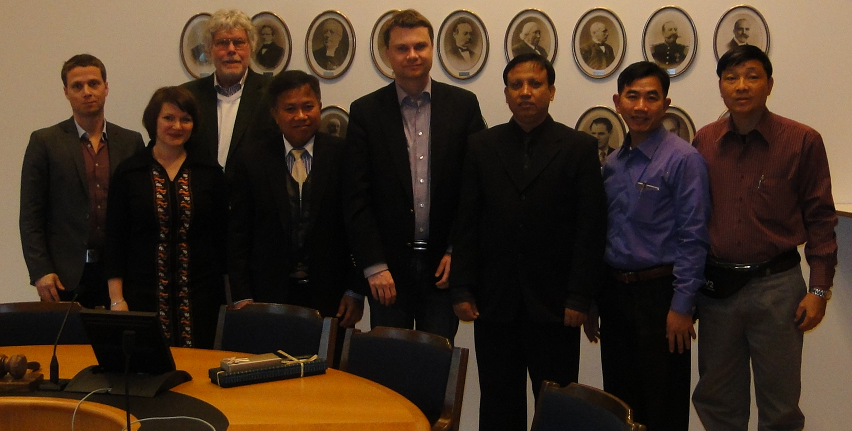A key partner is the University of Borås, Sweden, which is practicing
the technology of resource recovery and waste refining in the
Borås city, and seeks to transfer the knowledge, technology and
technological know-how to Mekong region through this project.
Says Dr. Muhammad Abu Yusuf, Project Coordinator of the Mekong Region
Waste Refinery-International Partnership Project, “The project aims at
capacity development, besides conducting a feasibility study and a
pilot project.” The key focus is to convert waste into energy as well
as resources, while ensuring zero land filling.
The Mekong region has witnessed a doubling of waste generation during
the past 10 years leading to issues of managing bulk waste. With the
physical facilities being inadequate, and few resources being allocated
for waste disposal, open dumping and uncollected waste remains the most
common practice. The project, which will run over 15 months involves
the Department of Environment of Phnom Penh Municipality, Cambodia;
Vientiane Urban Development Administration Authority (VUDAA), Lao PDR;
Detudom Municipality, Thailand; Ho Chi Minh City Department of Natural
Resources and Environment (HCMC DONRE), Vietnam; University of Borås,
Sweden; and Borås City, Sweden.
In mid-December a delegation from Thailand and Cambodia made a first
study visit to Borås where they visited Borås Energi and Miljö AB, the
local energy and waste management company; Sobacken, the local waste
management plant the water treatment plant at Gässlösa; thermal power
plant in Borås; SP Swedish technical research institute; and the
Science Center “Navet”. In January, two officials from each city will
arrive in Borås for a four week long study visit to learn more about
waste management, resource recovery, waste to energy and zero landfill
in Borås.
More details are available at these links
University of Borås
EEP3r091


